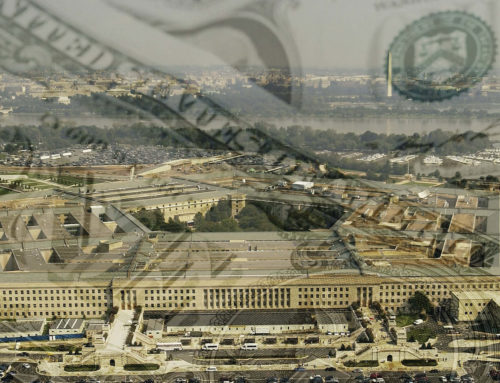Another day older and deeper in debt. That’s Tennessee Ernie Ford’s answer in his 1955 hit, “Sixteen Tons.” The song chronicles the life of a miner of “Number Nine Coal.” He reckons that he can’t die yet because, “I owe my soul to the company store.”
They evidently weren’t in northeastern Pennsylvania, because just six years after Ford’s hit, a handful of local lawmakers cooked up a scheme to boost the anthracite coal industry. In May 1961 the American taxpayer started to pay to ship American coal to power U.S. bases in Germany. Half a century later, taxpayers are still paying to ship coal and that earned the House and Senate Appropriations Committees a “Golden Fleece.”
The genesis of the idea came from the fact that after World War II the U.S. military, predominately the Army, was bedding down at former German military bases or “Kasernes.” The U.S. needed places to station the hundreds of thousands of troops being sent to maintain the peace in Europe. Existing military bases were the cheapest way to go, and the German bases were heated with boilers that used coal. Local coal, of course, because coal is abundant in Germany. In 1990 the General Accounting Office (GAO, the non-partisan investigative arm of Congress since renamed Government Accountability Office) estimated that the U.S. military inherited 10,000 coal-fired boilers in Germany alone.
Back in the States, the market for anthracite coal was declining. By 1960 production had dropped to 18 percent of what it was in 1914. And, given improvements in the extraction process, employment was a mere 10 percent of what it was in World War I. All this was adding up to a stagnating market for anthracite coal and increasing unemployment among miners. And since anthracite coal was mined almost exclusively in northeastern Pennsylvania, that was catching the attention of the local politicians.
The accepted economic theory of supply and demand says that, as the demand for anthracite dried up, the people supplying it should turn to other products to meet new demands. But if you are a Member of Congress and you have a sufficient amount of power, you can manufacture a continuing demand for a product by opening a new market. And those 10,000 coal-fired boilers in Germany stoked a pretty robust market. Supply, meet your new demand.
A couple of meetings in 1961 between some Pennsylvania lawmakers and the Pentagon, a quick gentlemen’s agreement and a handshake, and pretty soon coal was leaving eastern Pennsylvania by train and traveling to ports on the East Coast – next stop: Rotterdam. And from Rotterdam it traveled by train and barge to U.S. military bases in coal-rich Germany.
This arrangement lasted about a decade until the Pentagon made plans to upgrade some facilities in Europe, including new oil-fired boilers. By this time Rep. Daniel Flood of Pennsylvania was the second most senior Democrat on the Appropriations subcommittee that funds the Pentagon. From that perch he inserted language in the Fiscal Year 1973 Department of Defense Appropriations Act that, “None of the funds available to the Department of Defense shall be utilized for the conversion of heating plants from coal to oil at defense facilities in Europe.” And for the next forty-two years that language, although now specific to only a few bases in Germany, has remained.
As Tennessee Ernie Ford might put it, since 1961 the United States is another 19,710 days older and deeper in debt.
It’s time to stop this “Golden Fleece” and end the shipping of U.S. anthracite coal to Germany.














Get Social